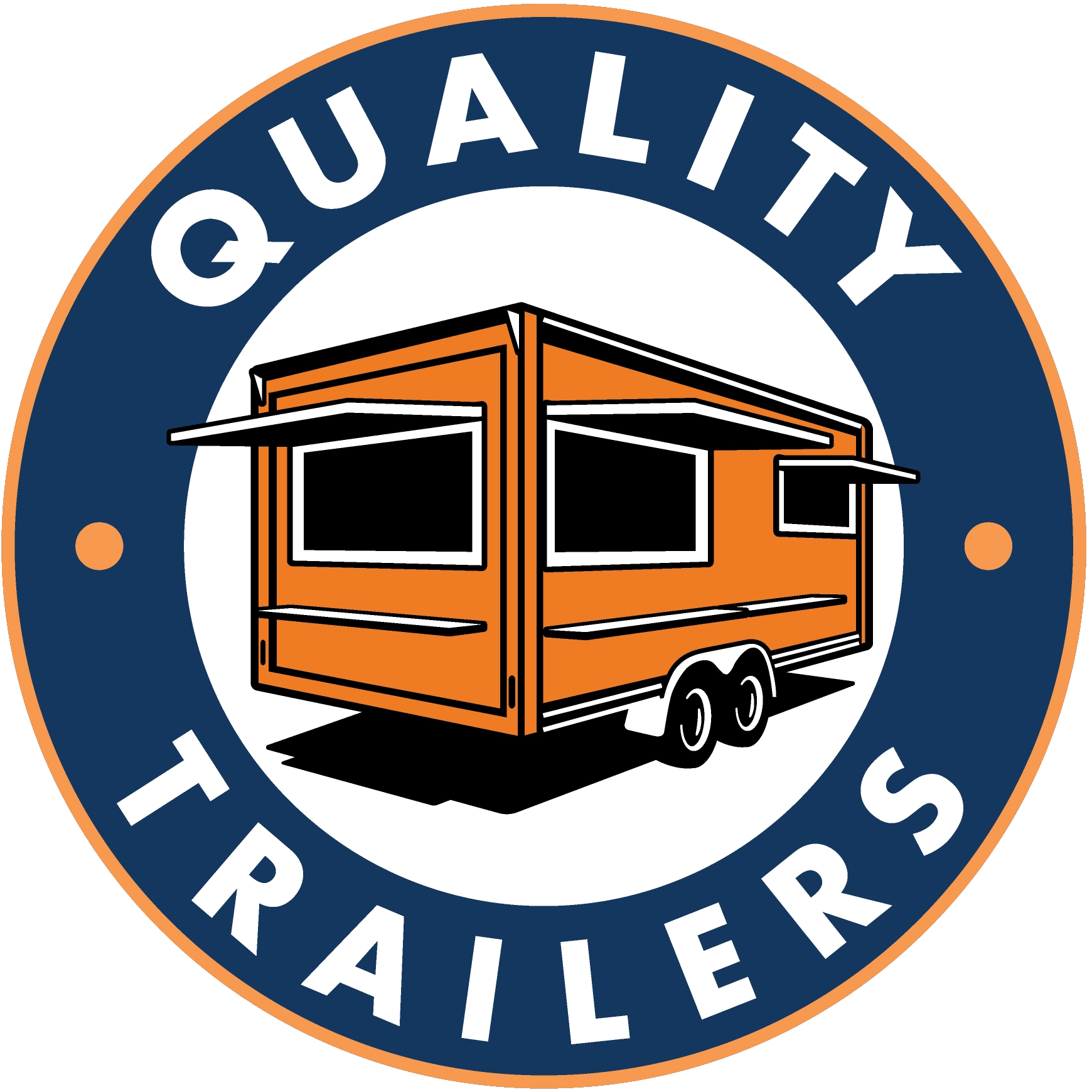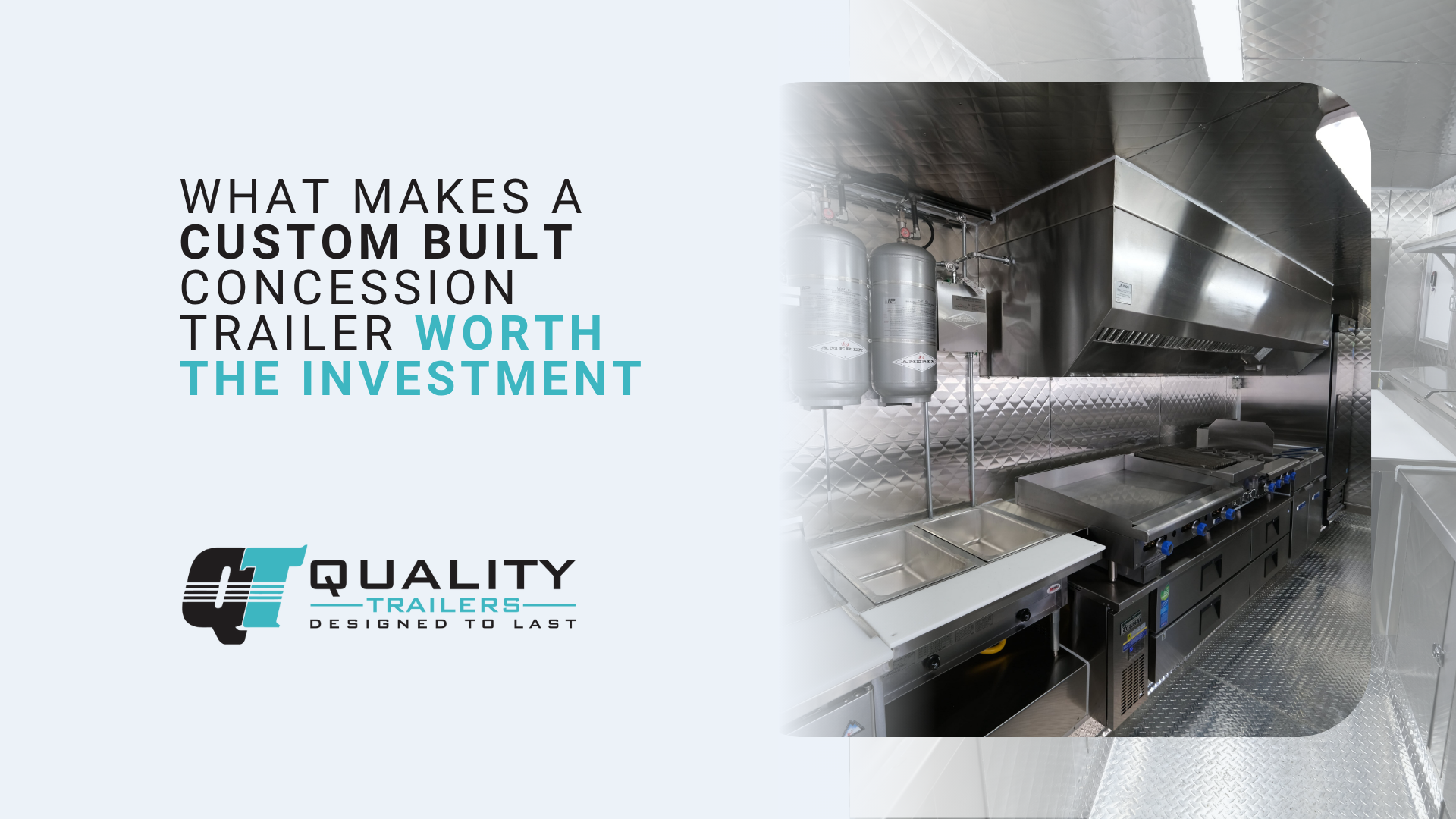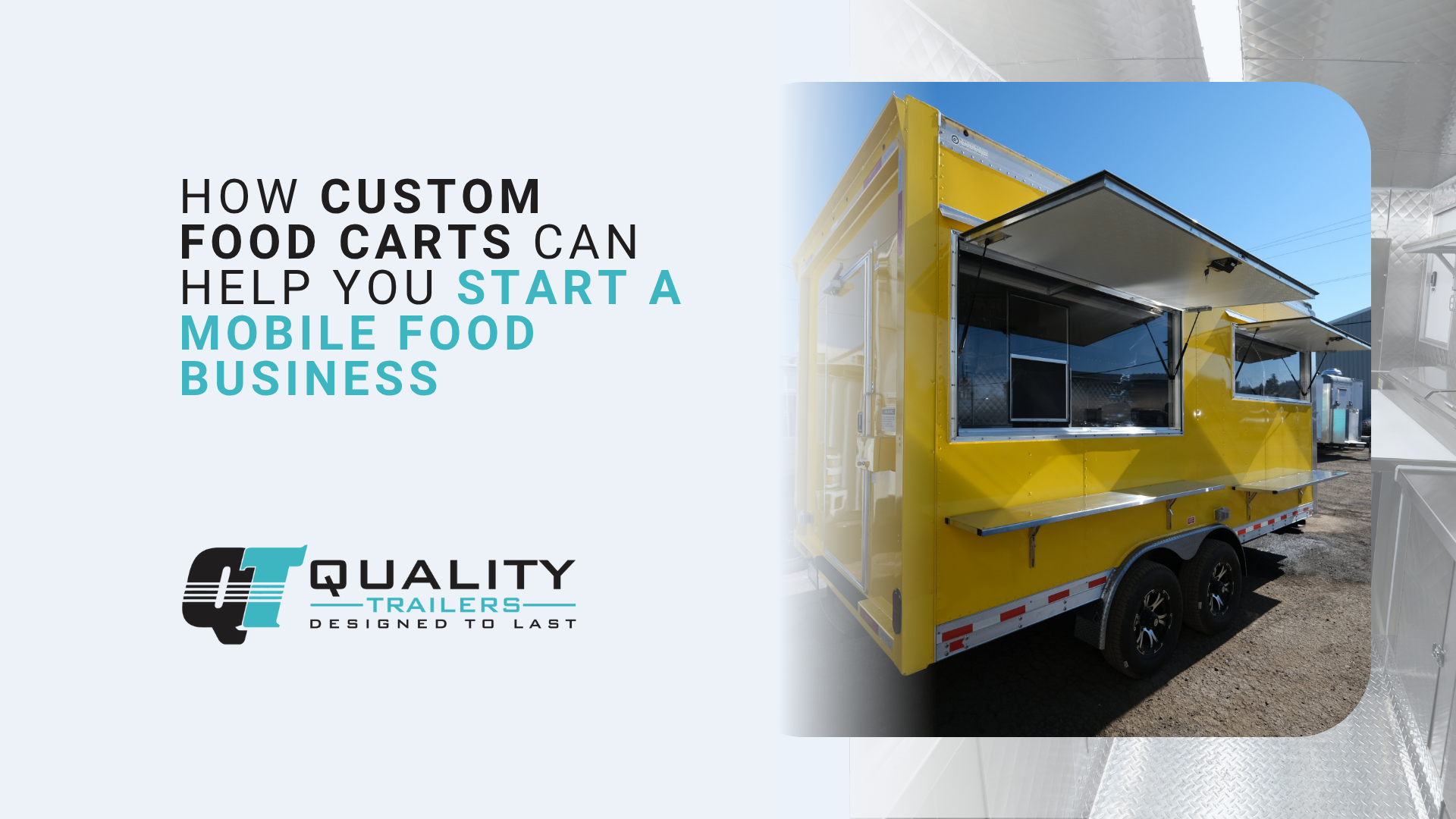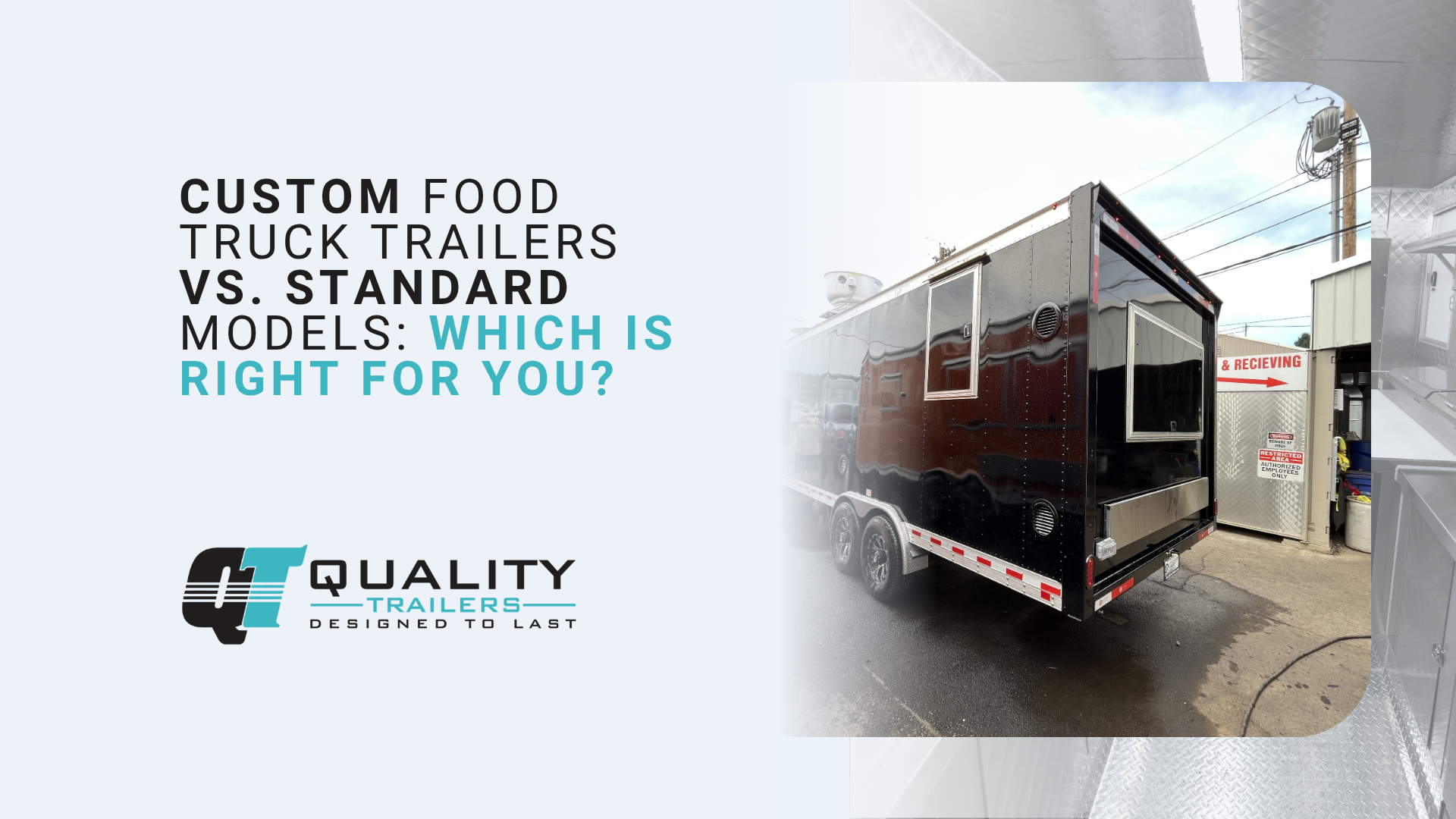When investing in a mobile food business, choosing certified food trailer manufacturers makes the difference between smooth operations and costly compliance failures. The complex landscape of certifications, standards, and regulations can overwhelm new operators, yet understanding these credentials proves essential for making informed purchasing decisions. Certified manufacturers demonstrate commitment to quality, safety, and regulatory compliance that protects your investment and supports successful operations.
The food trailer manufacturing industry operates under multiple oversight frameworks, each addressing specific aspects of construction, safety, and operational readiness. While no single certification guarantees perfect outcomes, manufacturers holding multiple relevant certifications typically produce superior products that meet regulatory requirements across jurisdictions. This comprehensive guide explores the certification landscape, helping you evaluate manufacturers based on meaningful credentials rather than marketing claims.
Understanding the Certification Landscape
Industry certifications for food trailer manufacturers fall into several categories, each serving distinct purposes. Construction certifications verify structural integrity and building practices. Safety certifications confirm compliance with fire, electrical, and operational hazards. Quality certifications demonstrate systematic approaches to consistent manufacturing. Understanding these categories helps evaluate which certifications matter most for your specific needs.
The certification ecosystem includes government-mandated standards, industry association programs, and third-party verification systems. Some certifications carry legal weight, affecting your ability to operate in certain jurisdictions. Others represent voluntary standards that indicate manufacturer commitment to best practices. Distinguishing between mandatory and optional certifications helps prioritize evaluation criteria when selecting manufacturers. Visit Quality Trailers Inc to see how certified manufacturers display their credentials.
Critical Safety Standards for Mobile Food Service
Safety standards form the foundation of reputable food trailer manufacturing, protecting both operators and customers from preventable hazards. The National Fire Protection Association (NFPA) provides comprehensive standards specifically addressing mobile food service operations. NFPA 96 covers ventilation requirements for commercial cooking, while NFPA 1 addresses fire safety in mobile units. Manufacturers certified in these standards understand critical safety requirements beyond basic construction.
Electrical safety certifications prove equally important given the unique challenges of mobile operations. Underwriters Laboratories (UL) certification for electrical components ensures equipment meets rigorous safety testing. The National Electrical Code (NEC) Article 551 specifically addresses recreational vehicles, which many jurisdictions apply to food trailers. Manufacturers demonstrating familiarity with these standards through certification produce safer, more reliable units that pass inspections consistently.
NSF Certification and Food Safety Compliance
NSF International certification represents one of the most important credentials for food service equipment and construction. NSF standards address food safety through material specifications, design requirements, and construction practices. Equipment bearing NSF certification has undergone third-party verification for cleanability, durability, and food safety. Manufacturers using NSF-certified components and following NSF construction guidelines produce trailers that meet health department requirements more reliably.
Beyond individual component certification, some manufacturers pursue NSF facility certification for their entire operation. This comprehensive approach ensures consistent application of food safety principles throughout the manufacturing process. NSF-certified facilities undergo regular audits, maintain detailed documentation, and demonstrate ongoing compliance with evolving standards. Working with NSF-certified manufacturers significantly reduces risks of health code violations in your finished trailer.
DOT Compliance and Transportation Safety
Department of Transportation (DOT) compliance represents a fundamental requirement for any vehicle operating on public roads. Food trailer manufacturers must understand Federal Motor Vehicle Safety Standards (FMVSS) applicable to trailers, including lighting, braking, and coupling requirements. Manufacturers demonstrating DOT expertise through proper documentation and compliance procedures produce trailers that register and insure without complications.
State-specific DOT requirements often exceed federal minimums, particularly for commercial trailers. Weight ratings, brake specifications, and safety equipment requirements vary by jurisdiction. Experienced manufacturers understand these variations and can produce trailers meeting requirements for your intended operating areas. This expertise prevents registration delays and potential legal issues from non-compliant construction. Request a custom quote from manufacturers who understand your regional requirements.
Quality Assurance Programs and ISO Standards
Quality assurance programs distinguish professional manufacturers from casual builders. ISO 9001 certification demonstrates systematic approaches to quality management, including documented procedures, continuous improvement processes, and customer satisfaction focus. While not specific to food trailers, ISO certification indicates organizational maturity and commitment to consistent quality delivery.
Industry-specific quality programs provide additional validation. The National Association of Trailer Manufacturers (NATM) offers certification programs addressing construction standards and business practices. Manufacturers participating in these programs submit to third-party inspections and maintain compliance with evolving industry standards. These certifications provide confidence in both product quality and business stability.
Welding Certifications and Structural Integrity
Welding quality directly impacts trailer longevity and safety, making welder certification crucial for reputable manufacturers. American Welding Society (AWS) certification ensures welders possess skills and knowledge for specific welding processes. Certified Welding Inspector (CWI) credentials indicate expertise in evaluating weld quality and compliance with specifications. Manufacturers employing certified welders and inspectors produce structurally superior trailers.
Beyond individual certifications, some manufacturers maintain facility certifications for welding operations. AWS facility certification requires documented procedures, quality control systems, and regular third-party audits. This systematic approach ensures consistent weld quality across all production, not just when certified welders perform specific tasks. Structural integrity depends on these quality systems throughout manufacturing.
Health Department Approved Construction Methods
Regulatory compliance extends beyond safety to encompass health department requirements for food service operations. Manufacturers experienced with health department regulations understand construction details that facilitate approval. This includes proper material selection for food contact surfaces, adequate spacing for cleaning access, and ventilation designs meeting local requirements. Certification in food service construction indicates this specialized knowledge.
Some manufacturers maintain pre-approved plans with various health departments, streamlining the permitting process for customers. These relationships demonstrate ongoing compliance and understanding of regulatory requirements. Manufacturers offering health department coordination services typically maintain better awareness of code changes and regional variations. This expertise proves invaluable when operating across multiple jurisdictions. Contact us to learn about our health department expertise.
Electrical and Plumbing Certifications
Specialized systems in food trailers require certified professionals for safe, compliant installation. Electrical certifications ensure proper wire sizing, circuit protection, and grounding for mobile applications. Master electrician involvement in design and installation prevents common electrical failures and safety hazards. Manufacturers employing certified electricians produce trailers with reliable, code-compliant electrical systems.
Plumbing certifications address unique challenges of mobile water systems. Certified plumbers understand backflow prevention requirements, proper venting techniques, and materials suitable for mobile use. Health departments increasingly scrutinize plumbing installations, making certified installation crucial for approval. Manufacturers with certified plumbing staff avoid common violations that delay operations.
Environmental and Sustainability Certifications
Growing environmental awareness drives demand for sustainable manufacturing practices. LEED certification for manufacturing facilities indicates commitment to environmental responsibility. Energy Star partnerships demonstrate focus on energy-efficient equipment and construction practices. These certifications appeal to environmentally conscious operators while often indicating overall operational excellence.
Sustainability certifications extend beyond environmental impact to encompass social responsibility and economic sustainability. B Corporation certification indicates commitment to stakeholder value beyond profit maximization. Manufacturers pursuing these comprehensive certifications typically demonstrate higher ethical standards and longer-term thinking. These values often translate into better customer relationships and product support.
State-Specific Manufacturing Licenses
Many states require specific licenses for commercial trailer manufacturing beyond general business permits. These licenses often mandate insurance coverage, bonding requirements, and technical competency demonstrations. California’s Commercial Coach certification program exemplifies stringent state requirements. Manufacturers maintaining multiple state licenses demonstrate capability for multi-jurisdictional compliance.
State licensing often includes ongoing education requirements and regular facility inspections. Licensed manufacturers stay current with regulatory changes and maintain required documentation. This regulatory engagement benefits customers through better compliance awareness and documentation support. Verify manufacturer licensing in your intended operating states to avoid complications.
Understanding the Inspection Processes
Inspection processes validate manufacturer compliance with various certification requirements. Third-party inspections provide objective verification of claims and capabilities. Understanding these processes helps evaluate manufacturer credentials meaningfully. Regular inspections indicate ongoing compliance rather than one-time achievement. Frequency and scope of inspections vary by certification type.
Manufacturers embracing inspection processes typically maintain better documentation and quality systems. They can provide inspection reports demonstrating consistent compliance over time. Some manufacturers invite customer participation in inspections, demonstrating confidence in their processes. This transparency indicates professional operations focused on continuous improvement. Our homepage showcases our commitment to regular inspections and quality assurance.
Certification Benefits for Your Business
Working with certified food trailer manufacturers provides multiple benefits beyond basic compliance. Insurance companies often offer better rates for trailers built by certified manufacturers, recognizing reduced risk. Financing institutions view certified manufacturer relationships favorably, potentially improving loan terms. These financial benefits complement operational advantages of quality construction.
Health department inspectors typically approach trailers from certified manufacturers more favorably, expediting approval processes. The documentation provided by certified manufacturers supports permit applications and inspection processes. Resale values for trailers from certified manufacturers typically exceed those from uncertified sources. These long-term benefits justify potential premium pricing from certified manufacturers.
Evaluating Manufacturer Certification Claims
Not all certification claims carry equal weight, requiring careful evaluation of manufacturer credentials. Request specific certification numbers and verify them with issuing organizations. Current certifications matter more than expired credentials. Understand certification scope to ensure relevance to your specific needs. Some certifications apply only to specific processes or facilities, not entire operations.
Beware of misleading certification claims or industry association memberships presented as certifications. True certifications involve third-party verification and ongoing compliance requirements. Simple memberships or self-declared compliance lack meaningful verification. Ask manufacturers to explain their certification maintenance processes and recent audit results. Professional manufacturers welcome these discussions and provide supporting documentation readily.
International Standards and Cross-Border Operations
Food trailers operating internationally face additional certification requirements. CE marking indicates compliance with European Union standards. Transport Canada certification enables Canadian operations. Understanding international standards becomes crucial for operations near borders or event-based businesses crossing boundaries. Manufacturers familiar with international requirements can produce compliant trailers for diverse markets.
International certifications often exceed domestic requirements, providing additional quality assurance. Manufacturers pursuing international certifications demonstrate commitment to highest global standards. These certifications facilitate business expansion opportunities while ensuring superior construction quality. Consider future international operations when evaluating manufacturer certifications.
Technology Certifications and Modern Integration
Modern food trailers increasingly incorporate sophisticated technology requiring specialized certifications. EMC (Electromagnetic Compatibility) certification ensures electronic equipment operates without interference. Network equipment certifications validate secure, reliable connectivity. Manufacturers understanding technology integration requirements produce trailers ready for modern operational demands.
Payment processing certifications like PCI compliance affect integrated POS systems. Data security certifications become relevant for customer information handling. Manufacturers staying current with technology certifications enable advanced operational capabilities. These forward-thinking manufacturers position your business for evolving customer expectations and operational requirements.
Insurance and Liability Considerations
Manufacturer certifications directly impact insurance availability and pricing for your food trailer. Carriers assess manufacturer credentials when underwriting policies. Certified manufacturers typically maintain product liability insurance, providing additional protection. Understanding insurance implications helps evaluate the true cost of working with uncertified manufacturers.
Liability considerations extend beyond initial purchase to ongoing operations. Certified manufacturers better understand liability prevention through proper construction. Their documentation supports legal defense if incidents occur. Insurance claims process more smoothly with certified manufacturer documentation. These protections prove invaluable during challenging situations.
Regional Certification Variations
Certification requirements vary significantly by region, reflecting local priorities and historical incidents. West Coast jurisdictions often emphasize seismic safety and environmental standards. Southern states might prioritize hurricane resistance and heat management. Understanding regional variations helps select manufacturers with relevant expertise for your operating area.
Urban areas typically maintain stricter requirements than rural jurisdictions. Manufacturers experienced with urban certifications produce trailers meeting highest standards. This expertise facilitates operations in diverse locations without modification requirements. Regional expertise in manufacturers prevents costly retrofitting for local compliance.
Maintaining Certification Compliance
Certification compliance extends beyond initial manufacturing to ongoing operations. Many certifications require regular renewals and continued education. Manufacturers maintaining long-term certifications demonstrate sustained commitment to quality. Understanding renewal requirements helps evaluate manufacturer stability and ongoing support capabilities.
Documentation requirements for certification maintenance benefit customers through better record keeping. Certified manufacturers typically provide comprehensive documentation packages supporting your compliance needs. They understand documentation importance for inspections and incident response. This systematic approach to documentation simplifies your operational compliance burden.
Future Certification Trends
Certification requirements continually evolve responding to incidents, technology advances, and regulatory changes. Emerging certifications address cybersecurity, sustainable operations, and advanced safety systems. Manufacturers investing in emerging certifications position themselves and customers for future requirements. Understanding certification trends helps select forward-thinking manufacturing partners.
Predictive maintenance certifications may become standard as technology enables condition monitoring. Sustainability certifications will likely expand beyond environmental impact to encompass circular economy principles. Safety certifications increasingly address active systems beyond passive construction standards. Manufacturers embracing these trends provide better long-term value despite potentially higher initial costs.
Making Informed Manufacturer Selection
Selecting among food trailer manufacturers requires balancing certification credentials with other factors like experience, price, and service. Create weighted evaluation criteria reflecting your specific priorities. Certifications indicating safety and compliance typically warrant highest priority. Quality certifications provide confidence in consistent delivery. Sustainability certifications align with many operators’ values.
Beyond certifications, evaluate manufacturer experience with your specific concept type. Request references from similar operations and verify satisfaction. Understand warranty terms and support availability. Consider geographic proximity for service needs. Certifications provide important validation but shouldn’t overshadow other crucial selection factors.
Why Choose Quality Trailers Inc for Certified Manufacturing Excellence
At Quality Trailers Inc, our commitment to maintaining comprehensive industry certifications reflects our dedication to producing superior food trailers that exceed customer expectations. With over 23 years in manufacturing and specialization in food trailers since 2010, we’ve invested heavily in achieving and maintaining certifications that matter for your success. Our certified welders, licensed electricians, and trained technicians ensure every trailer meets highest safety standards while facilitating regulatory compliance across jurisdictions.
Our quality assurance programs go beyond minimum requirements to encompass comprehensive inspection processes and detailed documentation. We maintain current knowledge of health department requirements across multiple states, building this expertise into every design. Our commitment to certification benefits extends to helping customers understand and leverage these credentials for their business success. From initial design through final delivery, our certified processes ensure your trailer meets all applicable standards.
Quality Trailers Inc believes that proper certification represents just the beginning of manufacturing excellence. Our ongoing training programs, regular third-party audits, and continuous improvement initiatives ensure we remain at the forefront of industry standards. When you choose Quality Trailers Inc, you’re partnering with certified food trailer manufacturers who understand that your success depends on our commitment to quality, safety, and compliance. Let us demonstrate how our certifications translate into superior trailers that support profitable, compliant operations for years to come.
Frequently Asked Questions
Which certifications are absolutely essential for food trailer manufacturers?
Essential certifications include welding certifications (AWS), electrical licenses for commercial work, and DOT compliance knowledge. NSF certification for food contact materials and construction methods proves crucial for health department approvals. State-specific manufacturing licenses are mandatory where applicable. These core certifications ensure basic safety and compliance capabilities.
How can I verify a manufacturer’s certification claims?
Request specific certification numbers and contact issuing organizations directly for verification. Current certifications should be displayed on manufacturer websites or facilities. Ask for recent audit reports or inspection documentation. Legitimate manufacturers readily provide verification information and welcome scrutiny of their credentials.
Do manufacturer certifications affect my trailer’s insurance costs?
Yes, trailers built by certified manufacturers often qualify for better insurance rates due to reduced risk assessment. Certified manufacturers typically maintain product liability coverage providing additional protection. Documentation from certified manufacturers supports claims processing and can prevent coverage disputes. The insurance benefits often offset any premium pricing from certified manufacturers.
How often do manufacturing certifications require renewal?
Most safety and quality certifications require annual or biennial renewal including continuing education and facility inspections. Welding certifications typically renew every 3-5 years with testing requirements. Business licenses generally renew annually. Manufacturers maintaining long-term certifications demonstrate ongoing commitment to compliance and quality.
Are there different certification requirements for custom versus standard builds?
Certification requirements typically remain consistent regardless of customization level, though custom builds may trigger additional engineering reviews. Custom designs might require professional engineer stamps in some jurisdictions. Certified manufacturers understand how to maintain compliance while accommodating customization. The key lies in working with manufacturers experienced in certified custom construction.



